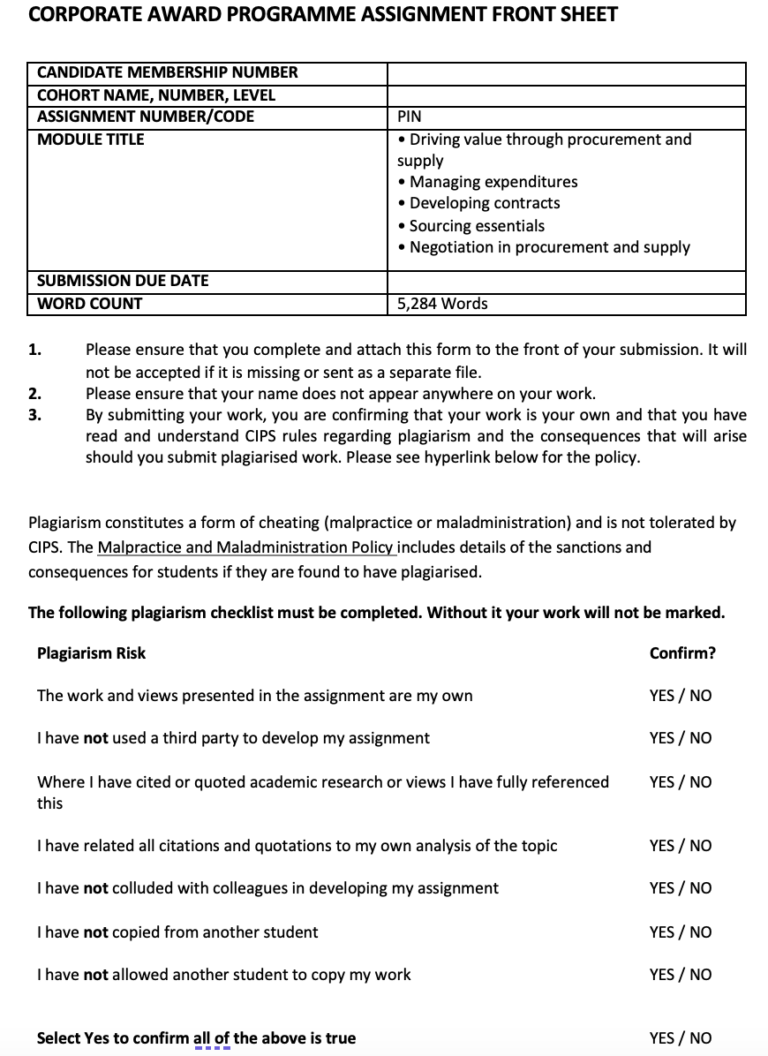Description
Solution
For a successful contract implementation, stakeholders involved ought to ensure they perform in optimum by satisfying the monitoring and management expectations. In RCU, this is part of their T&Cs and note;
According to Huang et al. (2022), for the purpose of meeting the set requirements, terms and conditions in a contract are important for monitoring and managing a contract. This is through an integration of appropriate and clear performance measures. In RCU case, they employ Service Level Agreements (SLAs) which are intended to manage costs and successfully coordinate their operations. This is with their management of ministerial sites increasing holistically.
Further, as part of the set performance measures, they are relevant to note the scope of professional knowledge integration in business practice. This is for technically and professionally implementing a contract. For instance, for the organisation failing in putting in place holistic IT software and innovation, it affect ability to be consistent in performance management. For functional consideration, performance measures are prioritised implementing the contracts and include collaboration with the rest, inclusion and standard template employed in process implementation. This is unique and guided by specifications which are set by RCU PS&M teams. As a best practice, RCU need to pursue a benchmark with public and private sector organisations to understand their approach towards contract monitoring and evaluation.
Prior rolling out the performance monitoring and appraisal metrics, RCU creates an awareness to all their stakeholders on the likely risks incurred for failure to effectively pursue the contract. Their T&Cs highlight;….
Please click the following icon to access this project in full
Related Papers
(Solution) CIPD Level 5 Avado Learning 5C003- Professional Behaviours and Valuing People
(Solution) CIPD Explain the difference between fair and unfair dismissal (AC3.5)
(Solution) CIPS PIN Final Assessment Negotiation in procurement and supply
- In this integrative assessment for Corporate Award Program establishes it has provided a formal commercial negotiation for Occidental of Oman operating in oil and gas industry.
- Commercial negotiation plan has been developed by reference to data, factual information and CIPS tools. HSE and chemicals portfolio spend category has been identified and evaluated in-depth to come up with an appropriate negotiation plan.
- The importance of identifying the HSE and Chemicals are informed by the previous COVID-19 pandemic which has informed on the need for adopting healthy business environment which is free from any infections.
- Further, coming from the pandemic where the level of business operations had significantly reduced and the organisation need to restart their operations by cleansing their systems and machines. In this case, the need for HSE and the chemicals portfolio in Occidental of Oman has been in an upward trajectory.
- For negotiation successful implementation, Occidental of Oman involves professionals, terms and conditions initiated, holistic readiness and streamlined procurement and supply chain approaches. This is with good forecast and plans being core for guaranteeing customers services delivery on time.
- From the analysis, different tools including SWOT, PESTLE and 4R’s have evidenced that Occidental of Oman is always on the advantage of ensuring they achieve the Best Alternative for Negotiated Agreement (BATNA).
- Also, this report highlight the need for holistic planning by prioritising on all expectation from the initial opening to the closure and agreement phases of negotiation.



